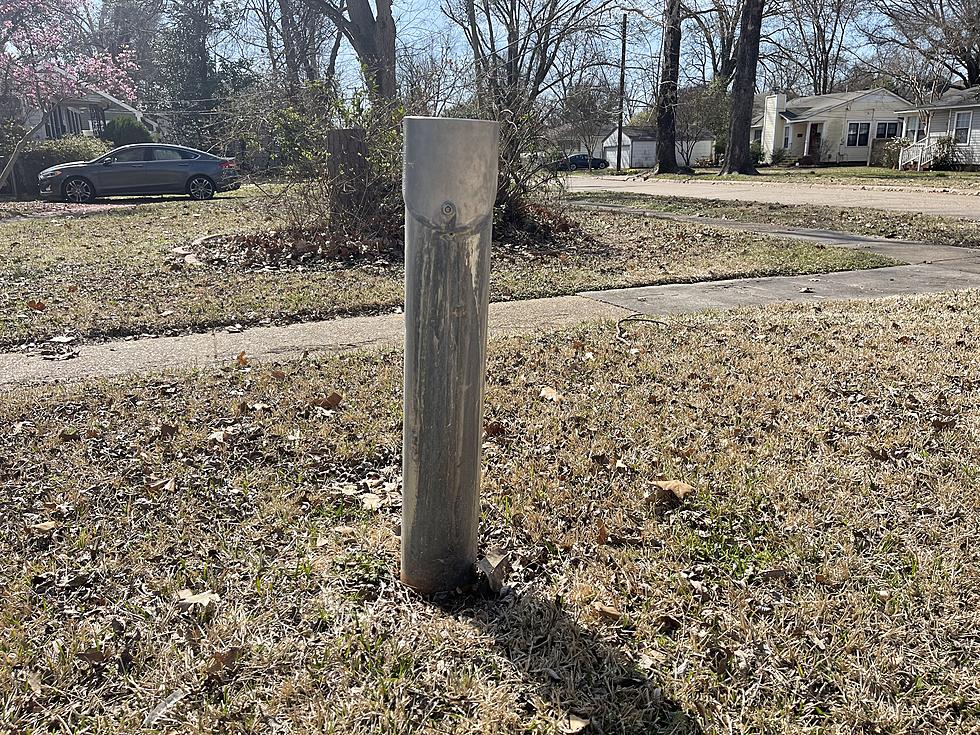
These Are All Over Shreveport: Do You Know What They Are?
You might've seen these silver 'posts' on corners or in the middle of blocks in neighborhoods all around Shreveport, but do you know what they are?

I checked with William Daniel, Director of Water & Sewerage for Shreveport, and he and his Deputy Director, Brandon Snead, gave me the breakdown. Those are City of Shreveport Water & Sewerage Department Water Sampling Stations. The city of Shreveport takes their water very seriously.
Shreveport Water & Sewerage works closely with the Louisiana Department of Health to make sure the water you get from your kitchen sink is clean, clear, and safe. There are 180 of those sampling stations across Shreveport that allows the city the ability to sample water from various locations all over town at any time.
And the workers you might see at one the stations are actually highly-trained scientists, with a minimum of a four year degree in their field. Samples are taken from the stations on a regular basis, but also if there is a special need, like a boil advisory, or if a water or sewer line breaks.
There may also be directives from the state, determining what station, and how often samples need to be taken to test the water. Each station is numbered, and samples are carefully handled to ensure the 'chain of custody' is strictly followed, in order to ensure the validity of testing results.
According to the LDH:
The Safe Drinking Water Program provides comprehensive drinking water protection to the citizens and visitors of Louisiana supervising public water systems for compliance with state and federal drinking water regulations. The Safe Drinking Water Program objective is to prevent illness and death that can occur from waterborne disease outbreaks or chemical exposure associated with contaminated drinking water. The Safe Drinking Water Program accomplishes this objective by the activities listed below.
Monitoring: Collection, analysis and review of bacteriological and chemical samples to ensure compliance with maximum contaminant levels, treatment technique requirements, monitoring and analytical requirements.
Inspections: Sanitary surveys and site inspections are conducted to evaluate the capability of a drinking water system to consistently and reliably deliver an adequate quality and quantity of safe drinking water to the consumer and to ensure compliance with state and federal drinking water regulations.
Engineering Plan Review: Conducts reviews of and issues permits for new construction and modification of public water systems including the source, treatment, storage and distribution facilities to ensure the quality and protection of drinking water.
See The 35 Buildings Shreveport's Mayor Has Marked For Demo
6 Things Shreveport Could Fix But Never Will
More From News Radio 710 KEEL









